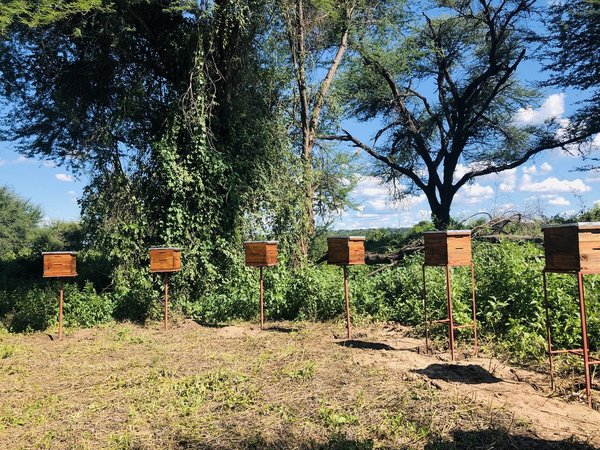 Read this article in French
Read this article in French- Share this article
- Subscribe to our newsletter
Supporting agrifood system start-ups
Alternative approaches and innovative solutions are needed to transform global agrifood systems in the face of challenges such as rapid population growth, economic downturns, extreme climates and changing consumption patterns.
A new instrument aims to help agrifood system start-ups develop their businesses while contributing to the UN's Sustainable Development Goals (SDGs): The SDG Agrifood Accelerator Programme. It was launched by the Food and Agriculture Organization of the United Nations (FAO) and the SEED partnership in February 2023.
Twelve small- and medium-sized enterprises (SMEs) were selected among the hundreds that comprise the portfolio of the SEED partnership. They are to be supported by the programme in three areas: financial readiness, innovation potential and market reach. The kind of help they will receive includes assistance in the development of business, marketing or investment plans, as well as advice on how to approach potential financiers or on how to go digital.
The SDG Agrifood Accelerator Programme acknowledges that all 17 SDGs are interconnected and addresses challenges across a broad range of goals, from no poverty and zero hunger to good health, gender equality and climate action.
Operating across eight countries in Africa and Asia, the twelve SMEs who joined the Programme have been pioneering solutions designed to transform agrifood systems while improving the lives of some of the most vulnerable people in their communities.
One example is the Amaati Group, which empowers rural Ghanaian women by farming indigenous Fonio grains. Fonio has low water requirements and can withstand adverse weather conditions. This social enterprise works with over 2,000 farmers and dries, de-husks, packages, stores and markets Fonio cereal products for household consumption.
Another of these SMEs can be found in Botswana, where Kalahari Honey trains and supplies farmers with beehives that act as ‘active’ fences to prevent elephants from destroying their farms. The farmers sell the bee products back to Kalahari Honey, which then markets them globally.
In Thailand, Listenfield applies scientific principles and climate data in order to provide precision farming solutions that cut field operation costs and provide a detailed outlook for yield prediction.
The results of the FAO-SEED Agrifood Accelerator Programme will be shared during the Global UN Food Systems Stocktaking Moment, which takes place in Rome, Italy, from the 24th – 26th July 2023, on the premises of FAO.
SEED was founded at the 2002 World Summit on Sustainable Development in Johannesburg/RSA by the UN Environment Programme (UNEP), the UN Development Programme (UNDP) and the International Union for Conservation of Nature (IUCN) as a global partnership for action on sustainable development and the green economy.
(FAO/ile)





Add a comment
Be the First to Comment